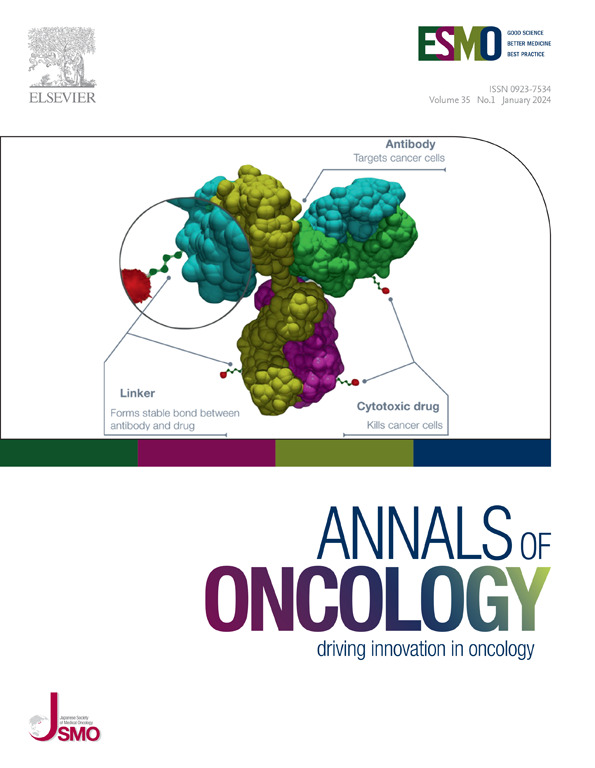重新定义临床试验策略设计以支持肿瘤药物批准。
IF 56.7
1区 医学
Q1 ONCOLOGY
引用次数: 0
摘要
随机临床试验代表了在肿瘤医学中引入创新疗法的黄金标准,它们为确定新药或新组合的临床活性提供了最高水平的证据。然而,目前支持创新药物批准的临床试验基础设施受到肿瘤生物学和治疗耐药性知识体系的增加、新型抗癌化合物的快速发展、令人印象深刻的数据分析能力的提升以及与临床试验管理相关的成本不断增加的挑战。在这种情况下,现代临床试验设计需要根据患者的医疗需求定制治疗策略,从而加快新药的批准。平衡的、以患者为导向的临床试验设计迫切需要提高其效率,包括快速发展的技术创新和科学发现,并最终面对现代肿瘤医学领域的挑战。本文章由计算机程序翻译,如有差异,请以英文原文为准。
Redefining clinical trial strategic design to support drug approval in medical oncology
Randomized clinical trials represent the gold standard for the introduction of innovative therapies in medical oncology, and they provide the highest level of evidence to ascertain the clinical activity of new drugs or novel combinations. However, the current infrastructure of clinical trials supporting innovative drug approvals is challenged by an increased body of knowledge concerning tumor biology and therapy resistance, a fast-growing armamentarium of novel anticancer compounds, an impressively upscaled data analysis capacity, as well as increasing costs related to clinical trials management. In this scenario, modern clinical trial designs need to evolve to expedite new drug approvals by tailoring patients’ treatment strategies according to their medical needs. Balanced, patient-oriented clinical trial designs are eagerly warranted to increase their efficiency, to include the fast pace of technological innovations and scientific discoveries, and, ultimately, to face the challenges of the modern medical oncology field.
求助全文
通过发布文献求助,成功后即可免费获取论文全文。
去求助
来源期刊

Annals of Oncology
医学-肿瘤学
CiteScore
63.90
自引率
1.00%
发文量
3712
审稿时长
2-3 weeks
期刊介绍:
Annals of Oncology, the official journal of the European Society for Medical Oncology and the Japanese Society of Medical Oncology, offers rapid and efficient peer-reviewed publications on innovative cancer treatments and translational research in oncology and precision medicine.
The journal primarily focuses on areas such as systemic anticancer therapy, with a specific emphasis on molecular targeted agents and new immune therapies. We also welcome randomized trials, including negative results, as well as top-level guidelines. Additionally, we encourage submissions in emerging fields that are crucial to personalized medicine, such as molecular pathology, bioinformatics, modern statistics, and biotechnologies. Manuscripts related to radiotherapy, surgery, and pediatrics will be considered if they demonstrate a clear interaction with any of the aforementioned fields or if they present groundbreaking findings.
Our international editorial board comprises renowned experts who are leaders in their respective fields. Through Annals of Oncology, we strive to provide the most effective communication on the dynamic and ever-evolving global oncology landscape.
 求助内容:
求助内容: 应助结果提醒方式:
应助结果提醒方式:


